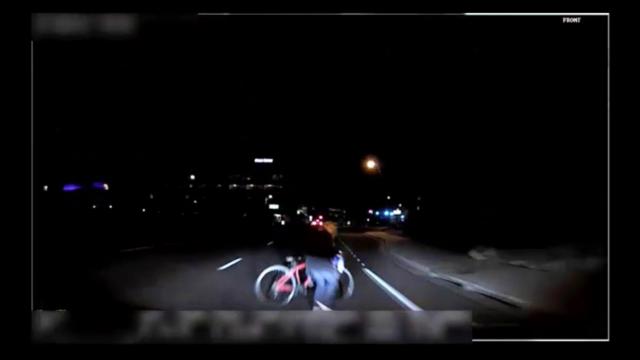U.S. federal investigators have determined an Uber self-driving car that killed 49-year-old pedestrian Elaine Herzberg in Tempe, Arizona in March 2018 lacked programming to either recognise or respond to the presence of jaywalkers on the road, Bloomberg reported on Wednesday.
The U.S. National Transportation Safety Board (NTSB) released 400 pages of documents on the fatal collision on Tuesday, finding numerous “safety and design lapses” but stopping short of identifying the cause of the accident, Bloomberg wrote.
Specifically, NTSB investigators determined that the Uber SUV’s “system design did not include a consideration for jaywalking pedestrians”—as well as that Uber built in a one-second delay between crash detection and action to avoid false positives and disabled a Volvo auto-braking system that could have reduced the speed of the car. (As Wired has reported, Carnegie Mellon University electrical engineer Raj Rajkumar said that last decision made sense due to the possibility of conflicts between Uber’s self-driving tech and Volvo systems.)
The autonomous car’s systems did spot Herzberg approximately 5.6 seconds before the collision but classified her as a number of different objects and failed to realise an impact was imminent. Each time it did so, the car had to calculate a new trajectory for the obstacle. That one-second “action suppression” delay occurred at the last possible moment the accident could have been avoided.
Additionally, NTSB investigators found the Uber Advanced Technologies Group team in charge of the Tempe test program failed to check off numerous safeguards, lacking a safety plan, dedicated safety staff, and operating procedures. According to Bloomberg, Uber cut back to one instead of two safety drivers five months before Herzberg’s death. The NTSB also found that there were at least two prior crashes in which Uber self-driving vehicles may have failed to identify roadway hazards and that 37 Uber self-driving crashes had previously occurred between September 2016 and March 2018.
Local prosecutors declined to pursue criminal charges against Uber or company officials earlier this year, though they did seem interested in investigating whether to prosecute its human operator, Rafaela Vasquez, on possible manslaughter charges.
Investigators determined Vasquez was not paying attention to the road at the time of the crash and may have instead been streaming the reality show The Voice, as well as that human intervention could have prevented the death.
Uber spokeswoman Sarah Abboud told Reuters that the company had “adopted critical program improvements to further prioritise safety. We deeply value the thoroughness of the NTSB’s investigation into the crash and look forward to reviewing their recommendations.” Those changes include reinstating the two-driver policy as well as adjusting safety protocols and creating an anonymous safety tipline, according to Wired.
NTSB investigators will be meeting in a matter of weeks (November 19) in D.C. to finalise their report on the crash, including a determination of cause.
